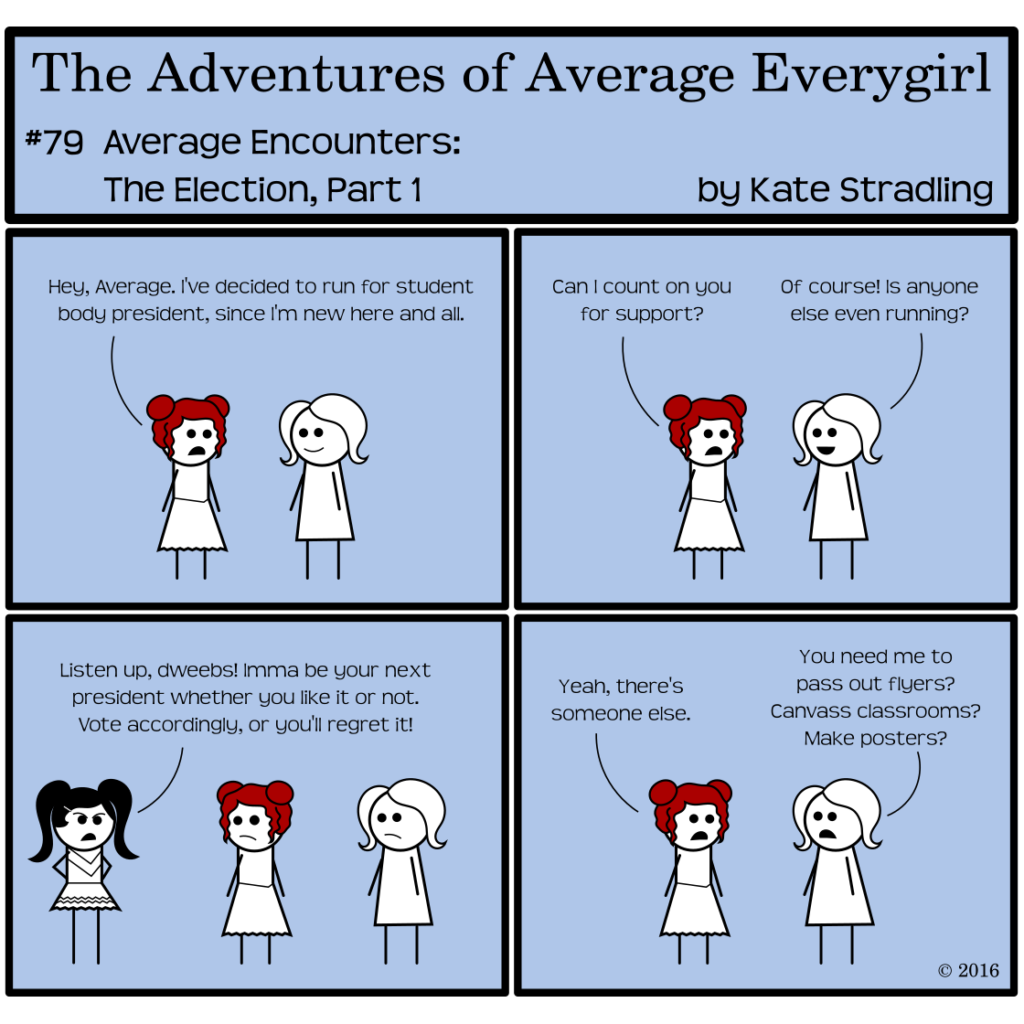
Politics is a touchy subject, I know. I think we can all agree, however, that our endless election cycle habitually draws the Worst Possible candidates into its jaws. (We may not agree on who those Worst Possibles are, but let’s sweep that detail under the rug, shall we? *wink*) The Worst Possibles always want power, and politics is a nexus thereof.
Peanut-butter, meet your jelly.
The diversity of thought in democratic-minded countries allows each and every one of us to feel like these Worst Possibles succeed far too often in the political sphere. We root for underdog challengers, but deep down we know the narrative is 98% set in stone.
So, we turn to fiction for solace.
Common or Garden Variety Election Trope
Whenever an election story line shows up—and I’m including Homecoming/Prom-type scenarios here as well—the reader automatically knows who the shoe-in is, who the underdog is, and which one of these, in a perfect world, would have absolutely no chance of winning.
(Hint: It’s usually not the underdog.)
It goes something like this:
Über-popular, awful Person A is a candidate for some office, contest, or award. Normal, kindly Person B gets nominated as well. Ugly politics ensue, wherein Person B must choose either to take the high road or to get down and dirty in the mud. In the end, whether A or B wins, the contest outcome is less important than the lessons learned along the way.
The audience can see at the outset that Person A is horrible, but the fictional society around Person A apparently cannot, which creates dramatic tension. On the other hand, the audience knows at the start that Person B is better and more deserving of the honor, but the fictional society has little to no clue that Person B even exists.
Variety is the Spice of Life
While there’s nothing inherently wrong with the above-mentioned narrative (and it certainly has its real-life equivalents), you wanna know the story I’d like to read instead?
Über-popular, kindly Person A is a candidate for some office, contest, or award. Normal, awful Person B gets into the race as well. Person B uses every underhanded, dirty tactic in the book—including invoking the Awful Popular vs. Kindly Underdog narrative described above—to unseat Person A from their social throne.
I don’t even care how the contest ends. Person A, being kindly, would exhibit grace regardless of the outcome. Person B, being awful, would seethe with resentment because of it (presuming there is no Convenient Reformation™ that occurs). The plot could twist in a tragic or comedic bent, depending on the author’s will.
Most importantly (for me), the focus of the story would shift from the contest to the characters. Does adversity corrupt or purify Person A? Does manipulation drive Person B to remorse or ruthlessness?
The external rivalry, dramatic as it may be, holds less interest than the spectrum of possible internal conflicts. Politics at its very best is not loud opinions and attention-hogging ads. It’s that quiet voice that whispers, “Is this who I really am? Is it who I really want to be?”
And, quizzically, it’s also the social instinct that smothers that voice to go with the flow. There’s always room for one more on the bandwagon.